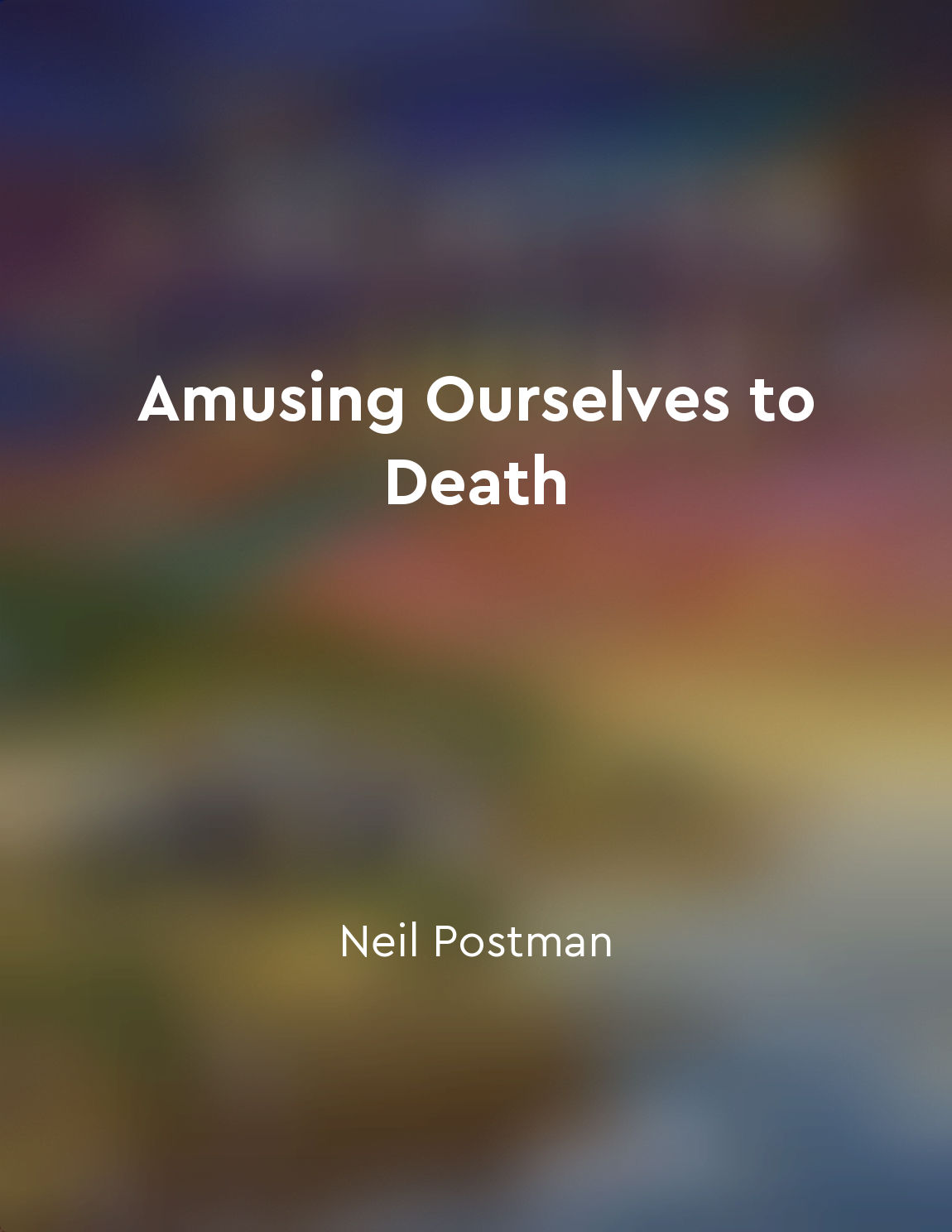TV entertainment distracts us from serious issues from "summary" of Amusing Ourselves to Death by Neil Postman
In the age of television, serious discourse has been subsumed by entertainment. The medium prioritizes visual spectacle and emotional engagement over intellectual rigor and critical analysis. As a result, important issues are often reduced to soundbites and sensationalized headlines. This shift from print-based culture to image-based culture has profound implications for our understanding of the world. Television packages information in a way that is easily digestible but lacks depth and nuance. Complex ideas are oversimplified to fit within the confines of a 30-minute news segment or a one-hour drama. As a result, viewers are presented with a distorted view of reality, where entertainment value takes precedence over factual accuracy. Issues that require thoughtful consideration and nuanced debate are reduced to superficial talking points and catchy slogans. Furthermore, the constant barrage of entertainment on television serves as a distraction from the pressing problems facing society. Instead of engaging with difficult and uncomfortable truths, viewers are encouraged to escape into a world of fantasy and spectacle. This diversionary tactic serves to placate the masses and prevent them from questioning the status quo. By prioritizing entertainment over serious discourse, television has created a culture of passive consumption rather than active engagement. Viewers are conditioned to seek out pleasure and amusement rather than intellectual challenge and critical thinking. This has led to a society where superficiality reigns supreme and serious issues are relegated to the sidelines. In order to address the challenges facing society, we must reevaluate the role of television in shaping public discourse. By recognizing the ways in which entertainment distracts us from serious issues, we can begin to reclaim the power of intellectual engagement and critical thinking. Only then can we hope to create a more informed and thoughtful society that is capable of confronting the complex problems of our time.Similar Posts
Happiness is not solely dependent on external factors
Happiness is often thought to be the result of external factors such as wealth, success, or good fortune. We believe that if we...
People must educate themselves and advocate for social justice and equality
The task of educating oneself and advocating for social justice and equality is a crucial one in today's world. It is a task th...
Cognitive demands of media have increased over time
In the world of media, the landscape is constantly evolving. What was once considered simple and straightforward has now become...
Media consumption contributes to intellectual growth
In the modern world, many people believe that the media is a negative influence on intellectual growth. They argue that the con...

Television shapes our culture more than we realize
Neil Postman argues that television has a profound influence on shaping our culture, although most people are unaware of the ex...

TV entertainment distracts us from serious issues
In the age of television, serious discourse has been subsumed by entertainment. The medium prioritizes visual spectacle and emo...
Modern media consumption boosts intelligence
In our fast-paced world, where technology is constantly evolving, many people worry about the negative effects of modern media ...
Creating digital artifacts promotes dialogue and reflection
When students engage in the process of creating digital artifacts, they are not merely producing content. Instead, they are act...
Technology can redefine the boundaries of privacy
In Technopoly, Neil Postman discusses the impact of technology on society, particularly in regards to privacy. He argues that a...
